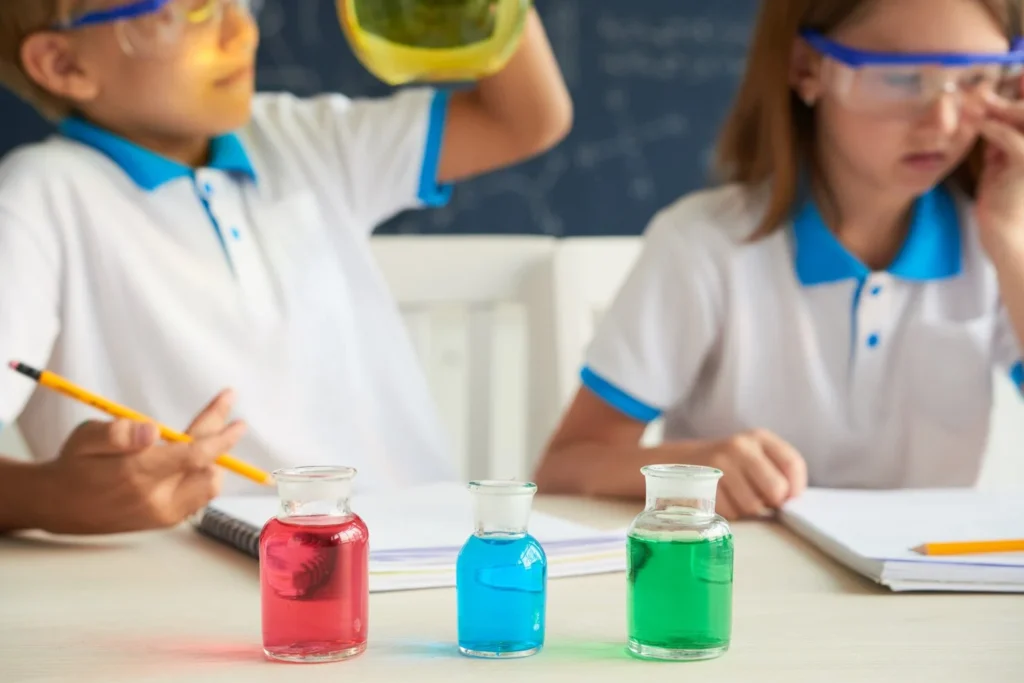Key Takeaways
- Preventive drug programs play a crucial role in reducing substance use among young people.
- Early education and intervention can lower the risk of developing substance use disorders.
- Schools provide a platform for equipping students with knowledge, skills, and support to make healthier choices.
Introduction
Substance use among young people is a growing concern in today’s society. Early exposure to drugs and alcohol can lead to lifelong struggles with addiction, impacting families and communities. Schools are at the forefront of efforts to educate students about the dangers of substance use and empower them to make healthier choices.
Preventive drug programs are designed to inform, guide, and support students, helping them avoid risky behaviors. These programs provide essential tools to navigate peer pressure, stress, and curiosity, all of which can lead to substance use. Understanding the importance and effectiveness of these programs can shed light on how they contribute to addiction prevention and recovery efforts.
The Need for Preventive Drug Programs in Schools
Rising Concerns
Substance use often begins during adolescence, a critical period for brain development. Statistics show that early drug or alcohol use increases the likelihood of developing substance use disorders in adulthood. Experimentation can interfere with academic performance, relationships, and long-term goals.
Programs targeting young people aim to break this cycle before it begins. By addressing substance use early, schools can help students understand the risks and consequences associated with drugs and alcohol.
Early Intervention
Educating students about the dangers of substance use is key. When informed about how drugs affect their bodies, minds, and futures, students are more likely to avoid them. This proactive approach reduces the likelihood of addiction and its consequences..
Components of an Effective Preventive Program
Education
At the heart of every successful program is education. Students learn about the short- and long-term effects of drug and alcohol use, including how it can lead to addiction. Discussions often cover the science behind substance use disorders and highlight the importance of avoiding risky behaviors
Skill Building
Preventive programs don’t just focus on the dangers of substance use—they also teach practical skills. Students learn to avoid peer pressure, manage stress, and make healthier decisions in challenging situations. Role-playing exercises and group activities often reinforce these skills.
Support Systems
An effective program includes access to counselors, mentors, and peer support groups. These resources create a safe space for students to discuss concerns, seek guidance, and develop a sense of belonging. Having trusted adults and supportive peers can significantly impact a student’s ability to avoid substance use.
Benefits of School-Based Preventive Drug Programs
Reduced Risk of Addiction
One of the most significant benefits of these programs is the reduction in substance use among participants. Students are better equipped to make choices that protect their health and future when informed and supported.
Improved Academic Outcomes
Students who avoid drugs and alcohol are more likely to excel in school. They have better focus, fewer behavioral issues, and improved attendance. By addressing substance use, schools create an environment that promotes academic success.
Community Impact
The benefits of preventive programs extend beyond the classroom. Educated students often share their knowledge with friends and family, creating a ripple effect that fosters healthier communities. Additionally, lower rates of substance use reduce the burden on healthcare systems and law enforcement.
Challenges in Implementing Preventive Programs
Resource Constraints
Many schools need a larger budget to implement comprehensive programs. Hiring qualified staff, purchasing educational materials, and providing ongoing training requires a financial investment not all schools can afford.
Stigma and Awareness
Discussing drugs and alcohol with young people can be met with resistance from parents or community members who fear it may encourage curiosity rather than prevention. Overcoming these misconceptions is essential for program success.
Consistency in Delivery
Not all programs are created equal, and inconsistent delivery can undermine effectiveness. Ensuring that instructors are well-trained and that content is engaging and relevant is vital to maintaining student interest and retention.
The Role of Parents and Communities
Parental Involvement
Parents play a crucial role in reinforcing the messages delivered through school programs. Open communication about substance use, setting clear expectations, and modeling healthy behaviors at home are critical factors in prevention.
Community Partnerships
Local organizations, healthcare providers, and law enforcement agencies can support schools by offering additional resources and expertise. Collaborative efforts ensure that students receive consistent messages about avoiding substance use.
How Preventive Programs Complement Addiction Treatment Efforts
Reducing Demand
Preventive programs aim to reduce the number of individuals who develop substance use disorders, thereby decreasing the overall demand for addiction treatment services. This proactive approach benefits both individuals and communities.
Raising Awareness
These programs also raise awareness about available resources for those who may already be struggling with substance use. Students and families learn about treatment options such as medical detox, residential care, and outpatient support, ensuring that help is accessible when needed.
Conclusion
Preventive drug programs in schools are a powerful tool for combating substance use and fostering healthier communities. By educating students, building essential skills, and providing support, these programs empower young people to make choices that lead to brighter futures.
However, the success of these initiatives requires the collaboration of schools, parents, and community organizations. Together, we can reduce the prevalence of substance use disorders and create a generation that values health and well-being.
If you or a loved one is struggling with addiction, know that help is available. Contact Virtue Recovery Killeen at 725-777-5685 to start the journey toward recovery today.
FAQs
Why are preventive drug programs in schools important?
These programs educate students about the dangers of substance use and provide them with skills to make healthier choices.
What are the key components of an effective program?
Education, skill-building, and access to support systems are essential for program success.
How do these programs benefit communities?
They reduce substance use rates, improve academic outcomes, and create a ripple effect of positive behavior within families and neighborhoods.
Resources:
https://nida.nih.gov/publications/drugs-brains-behavior-science-addiction/treatment-recovery







